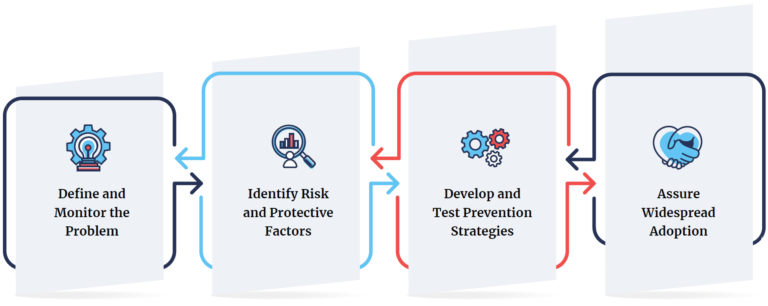- (443) 449-6290
- info@saharainc.net
- 1607 Saint Paul Street, Baltimore, Maryland 21202

Sahara’s public health marketing is based on the CDC’s definition of health marketing, which involves creating, communicating, and delivering health information and interventions using customer-centered and science-based strategies to protect and promote the health of diverse populations. Some of our public health marketing includes:
Social Determinants of Health (SDOH):
Our focus includes safe housing, transportation, and neighborhoods; racism, discrimination, and violence; education, job opportunities, and income; access to nutritious foods and physical activity opportunities; polluted air and water; language and literacy skills.
Syndemics:
We highlight factors that work together to make a disease or health crisis worse such as COVID-19 and HIV/AIDS.
Medical Apartheid:
Our consumer education campaigns call attention to medical apartheid such as Black Maternal Mortality where Black women in the U.S. are about three times as likely to die from a pregnancy-related cause as others, partly because of racial bias they may experience in getting care and doctors not recognizing risk factors such as high blood pressure.
Racial Health Disparities:
We address health disparities among minority and underserved communities such as children from low literacy, rural and low-income populations.
Structural Racism in Healthcare:
It is estimated that the U.S. could save nearly $230 million in medical care costs if racial and ethnic health disparities did not exist.
Food Inequities & Food Insecurities:
Our public health communications campaigns call attention to food inequities where low-income, impoverished Black and Hispanic neighborhoods have fewer large supermarkets and more small grocery corner stores, convenience stores, and fast-food restaurants than White neighborhoods.
Decriminalizing Mental Illness:
Our consumer education campaigns focus on decriminalizing mental illness among Black men. Research show that no other demographic group experiences incarceration as much as Black men.
Low Life Expectancy:
We produce podcasts and consumer education campaigns that focus on communities with low life expectancy.
Environmental Racism:
Our social change communications campaigns highlight environmental injustices such as the deliberate targeting of communities of color for toxic waste facilities, poisons and pollutants.
Blacks’ Lungs Matter:
Our consumer education campaigns call for the elimination of predatory marketing practices to the Black community including dense advertising, discounts, and e-cigarette sampling.
Harm Reduction:
We are supporters of proactive, evidence- based harm reduction approaches and interventions such as drug decriminalization or legalization aimed to reduce the harms associated with drug and alcohol use.
Evidence-based, Peer-reviewed Studies:
Our consumer education campaigns are heavily researched and constructed on evidence-based, peer-reviewed studies.